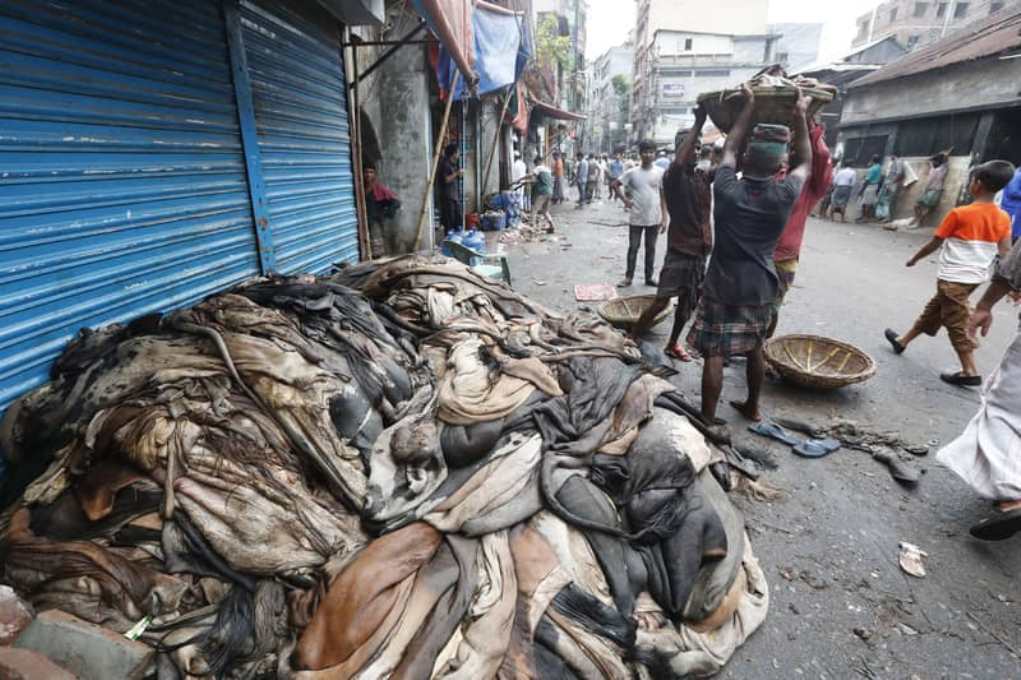
Published :
Updated :

Commerce Adviser Sheikh Bashir Uddin on Wednesday expressed the hope that the favourable rawhide prices seen this year would encourage more people to preserve hides during next year's Eid-ul-Azha.
He observed that those who preserved larger volumes of rawhide during the last Eid-ul-Azha received better prices compared to those who did not.
The adviser made the remarks while presiding over the third meeting of the Committee on Proper Management of Sacrificial Cattles at the Ministry of Commerce.
Fisheries and Livestock Adviser Farida Akhter, Industries Adviser Adilur Rahman Khan, Commerce Secretary Mahbubur Rahman, Industries Secretary Md Obaidur Rahman and Director General of the Department of Livestock Services Dr Md Abu Sufian also attended the meeting.
The meeting was told that a large number of rawhides was collected from the local market during the last Eid-ul-Azha as around 9.13 million animals were sacrificed across the country and a total of 6.04 million rawhides were preserved.
Of the total, 1.76 million hides were preserved by Madrasas, orphanages, and Lillah boarding schools.
The highest number of rawhides was preserved in Chattogram -- about 1.55 million, followed by Dhaka with 1.41 million, and Rajshahi with 1.39 million hides, the meeting was informed.
The meeting also discussed issues, including the challenges to proper management of rawhides during the Eid-ul-Azha.
The challenges include the presence of illegal or unauthorised markets, barriers to ensuring fair prices for rawhides at the local level, especially for small traders and donors, the meeting was told.
Besides, lack of designated spots or proper infrastructures for slaughtering sacrificial animals in many areas and poor knowledge among the people involved in the slaughtering process are also responsible for the situation.
Participants of the meeting said waste management during the Eid was also inadequate in several places.
The absence of a proper national policy on collection and preservation of rawhides also remains a key problem, they observed, adding that there is no permanent infrastructure for rawhide storage in key districts such as Dhaka and Chattogram.
To address such challenges, the committee made several recommendations, including making a policy to manage animal markets more effectively and ensuring proper waste management by city corporations and municipalities.
They also suggested enhancement of institutional capacity for rawhide collection, storage, transport, and overall management.
The Ministry of Fisheries and Livestock should also take steps to prevent and control cattle diseases like Lumpy Skin Disease, they suggested.
The committee further recommended creating a database on both seasonal and permanent rawhide traders and butchers at the district level and providing necessary training to them.
The meeting also called for upgrading CETPs and ETPs (treatment plants) to make them capable of handling a larger volume of hides.
A site near Dhaka should be developed with necessary infrastructure for the storage of rawhides, the meeting was told.
tonmoy.wardad@gmail.com


 For all latest news, follow The Financial Express Google News channel.
For all latest news, follow The Financial Express Google News channel.